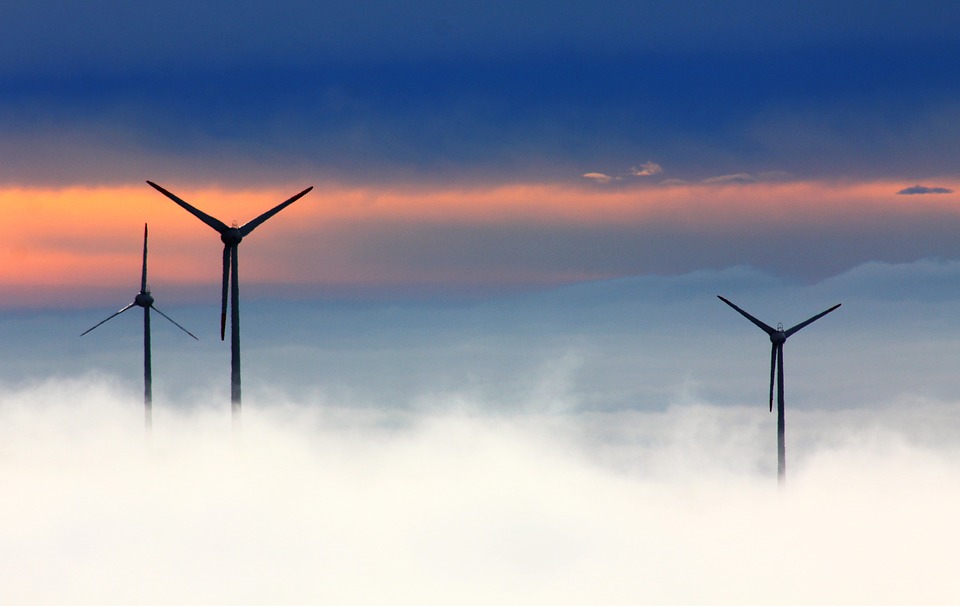Environmentalists from all around the world sound the alarm about the state of our planet. Scientists have predicted that if humanity does not change the way of using energy sources, our planet’s resources will run out in less than forty years.
Therefore, people have been changing their minds about using fossil fuels. In 2019, especially compared to previous years, the amount of young activists has increased. They are paying attention to global society and how to reduce the usage of resources with emissions that are harmful to our planet and our lives.
The United States gets 81% of its total energy from fossil fuels such as oil, coal, and natural gas. People depend on those fuels to heat homes, drive cars, run the power industry and manufacturing, and provide electricity. Students and teachers of many faculties are researching this problem in theory and helping scientists come up with practical solutions. Papers with renewable energy research topics are useful more than ever to discuss and spread knowledge on this catastrophe.
Hopefully, these ideas will help in the future to generate highly qualified research papers for your college, otherwise you can get benefits of our essay writing app. The numbers and facts show that more young brains are tuned into the awareness that humanity faces one of the biggest crises in history. This topic requires careful research. Therefore, start early, especially if you don’t know how to write an argumentative essay on the subject of renewable energy. Moreover, we advise you to check out this essay prompt generator for creative ideas. Now, look through the list of interesting renewable energy topics to get inspired!
Table of contents
Renewable energy research topics
These topics on renewable energy for the research paper can give you ideas for excellent papers in college.
- Renewable energy sources and the geological business plan.
- Should the European Union increase the usage of renewable energy as a mainstay?
- Renewable energy with the usage of hydrogen fuel technology.
- How can renewable energy help the natural environment of developing countries?
- Renewable energy is a necessary method in Japan: the world’s fifth carbon emitter.
- Methods of how renewable energy as the primary source of energy will affect society’s approach to a better standard of living.
- The use of renewable energy must be harnessed to reverse the negative impacts of climate change caused by global warming.
- Could the use of renewable energy sources realistically be the answer to global warming for Australia?
- Why landfills and recycling spaces are essential renewable energy sources.
- How can the negative impact on climate change be reduced by using renewable sources of energy?
- Why can’t we replace using fossil fuels with renewable energy?
- Energy savings programs of developed countries as an example to follow.
- Renewable energy development strategy.
- Businesses and energy communities that are using renewable energy sources.
- Renewable sources vs. fossil fuels energy.
- Sustainability and renewable energy.
- Benefits of renewable energy in 2020.
- New technologies for using renewable energy sources invented in 2019.
- How renewable energy affects our planet’s future.
- Usage of biomass as a source of renewable energy.
- The limitations of fossil fuels: the importance of renewable energy and its economic benefits.
- Power extraction methods from flow-structure interactions.
- The pros and cons of renewable energy usage in the EU.
- Why the US should use renewable energy.
- The real price of power: an environmental impact review of renewable energy use and mitigation strategies.
- Smart grid technology as a renewable energy source.
- The laws the government should enforce on citizens regarding environmental issues, such as renewable energy.
- The advantages of biofuels being renewable energy.
- Do renewable energy sources propose green methods of use?
- Hydropower is the best from available renewable energy sources.
Alternative energy topics
- Which changes in consumer preferences toward alternative energy sources have contributed to lower oil prices?
- Why the use of alternative energy is beneficial and economical.
- Are alternative energy sources like solar, wind, tidal, and geothermal more practical than fossil fuels?
- Why non-renewable energy is less valuable than alternative energy.
- Why should the government increase funding for the development of alternative energy sources?
- A classification of the alternative energy sources.
- Methods of alternative energy use.
- Why is the use of alternative energy beneficial and economical for modern businesses?
- Should the government implement taxes for the purchase of hybrid or alternative energy vehicles?
- Does the government justify alternative energy sources that are useful for the climate?
- Hydroelectric power as a popular alternative energy source in Australia.
- Alternative energy as a constructive and viable energy production method in comparison to destructive nuclear energy.
- The chances of alternative energy effectively replacing fossil fuels.
- Wind farms and their potential to provide alternative energy for commercial use.
- Qatar explores alternative energy sources to ensure Brunei’s economic prosperity in the light of its depleting oil and gas reserves.
- An alternative energy program that could be the answer to the nation’s energy problems.
- The economic arguments for and against bio fuels as a method of alternative energy.
- Alternative energy is no longer an option but a vital solution for humanity.
- Solar energy is a kind of alternative energy that is the best solution for the domestic needs of big cities and countrysides.
- Using wind energy as an alternative source for providing electricity.
- How does alternative energy as the primary source of energy affect society’s sustainability?
- Hydroelectric power: how is the public reacting to this new form of alternative energy?
- The role of alternative energy projects in solving South Africa’s energy crisis.
- How do alternative energy methods affect the ecosystem in Europe?
- What technical barriers are holding the alternative energy industry back from more considerable expansion and adoption in the consumer and commercial sectors?
- The reasons for alternative energy technologies taking off and costs dropping each year.
- Geothermal energy: the methods of implementing this technology as a compelling option of alternative energy.
- What are the advantages and disadvantages of alternative energy methods?
- Is reliance on alternative energy a viable long-term strategy, or does the abundance and profitability of fossil fuels give no real incentives to switch to cleaner forms of energy?
- Pros and cons of moving the global economy from a fossil fuel base to alternative energy.
Original Renewable Energy Research Paper Topics
- Why Renewable Energy Became Particularly Important in Japan After the Fukushima Daiichi Tsunami in 2011
- How Can the Private Sector Invest in Renewable Energy Projects in Developing Countries?
- Key Factors and Recommendations for Families and Firms Adopting Renewable Energy Systems
- How Have Renewable Energy Resources Replaced a Percentage of the Fossil Fuels Used in Different Countries?
- What Is the Contribution of Renewable Energy Sources to Global Energy Consumption?
- What Is the Technical and Economic Feasibility of Harvesting Kinetic Energy From Pedestrian Foot Traffic in High-Traffic Urban Areas?
- What Are Thermoelectric Generators’ Potential Applications and Efficiencies in Capturing and Converting Industrial Waste Heat Into Usable Energy?
- How Can Tidal Energy Conversion Technologies in River Estuaries Be Adapted to Provide a Reliable Renewable Energy Source?
- How Do Urban Microclimates Affect the Efficiency and Placement of Small-Scale Wind Turbines in Densely Populated Areas?
- What Are the Potential Energy Yields and Economic Benefits of Implementing Piezoelectric Materials in the Flooring of Public Buses and Trains?
- The Economic Impacts of the Promotion of Renewable Energy Technologies in Germany
- The Cost of Equity Capital for Renewable Energy in Emerging Markets
47 helpful resources on renewable and alternative energy topics
Writing a paper is a complicated process, especially in the ecological discipline. You may find out more interesting facts about alternative energy on our website, or use essay writing app for help. We also propose for students a list of more powerful tools for further inspiration.
- Ajayi, OO. (2009). “Assessment of utilization of wind energy resources in Nigeria.”
- Alnatheer, O. (2005). “The potential contribution of renewable energy to electricity supply in Saudi Arabia.”
- Anderson, D. (1997). Renewable energy technology and policy for development.”
- Bird, L., Bolinger, M., Gagliano, T., Wiser, R., Brown, M. and Parsons, B. (2005). “Policies and market factors driving wind power development in the United States.”
- Birgisson, G. and Petersen, E. (2006). “Renewable energy development incentives: Strengths, weaknesses, and the interplay.”
- Burns, J.R. (1982). “Solar energy and the national energy dilemma: A model for policy evaluation.”
- Cantono, S. and Silverberg, G. (2009). “A percolation model of eco-innovation diffusion: The relationship between diffusion, learning economies and subsidies.”
- Carley, S. (2009). “State renewable energy electricity policies: An empirical evaluation of effectiveness.”
- Charles, M.B., Ryan, R., Ryan, N. and Oloruntoba, R. (2007). “Public policy and biofuels: The way forward?”
- Christiansen, A.C. (2002). “New renewable energy developments and the climate change issue: A case study of Norwegian politics.”
- Cowan, K.R. and Daim, T. (2009). “Comparative technological road-mapping for renewable energy.”
- Dinica, V. (2008). “Initiating a sustained diffusion of wind power: The role of public-private partnerships in Spain.”
- Dritschilo, W., Monroy, M., Nash, E., Schuyler, B., Wallerstein, B.R., Vita, J.D., and Perrine, R.L. (1983). “Energy vs. food resource ratios for alternative energy technologies.”
- Elliott, D. (2000). “Renewable energy and sustainable futures.”
- Fouquet, D. and Johansson, T.B. (2008). “European renewable energy policy at crossroads – focus on electricity support mechanisms.”
- Gan, P.Y. and Li, Z. (2008). “An econometric study on long-term energy outlook and the implications of renewable energy utilization in Malaysia.”
- Harmon, R.R. and Cowan, K.R. (2009). “A multiple perspectives view of the market case for green energy.”
- Hope, C.W. (1982). “Assessing renewable energy research and development.”
- Huang, A.Y. and Liu, R. (2008). “Learning for supplying as a motive to be the early adopter of new energy technology: A study on the adoption of stationary fuel cells.”
- Huang, M., Alavalapati, J.R.R., Carter, D.R. and Langholtz, M.H. (2007). “Is the choice of renewable portfolio standards random?”
- International Energy Agency (IEA) (2006). Key World Energy Statistics 2006, http://www.iea.org/textbase/nppdf/free/2006/key2006.pdf.
- Inoue, Y. and Miyazaki, K. (2008). “Technological innovation and diffusion of wind power in Japan.”
- Jacobsson, S. and Johnson, A. (2000). “The diffusion of renewable energy technology: An analytical framework and key issues for research.”
- Kajikawa, Y. and Takeda, Y. (2008). “Structure of research on biomass and biofuels: A citation-based approach.”
- Kajikawa, Y., Yoshikawa, J., Takeda Y. and Matsushima, K. (2008). “Tracking emerging technologies in energy research: Toward a roadmap for sustainable energy.”
- Karger, C.R. and Bongartz, R. (2008). “External determinants for the adoption of stationary fuel cells – infrastructure and policy issues.”
- Kobos, P.H., Erickson, J.D. and Drennen, T.E. (2006). “Technological learning and renewable energy costs: Implications for US renewable energy policy.”
- Kydes, A.S. (2007). “Impacts of a renewable portfolio generation standard on US energy markets.”
- Linston, H.A. (1999). Decision making for technology executives: Using multiple perspective to improve performance. Boston: Artech House.
- Loiter, JM and Norberg-Bohm, V. (1999). “Technology policy and renewable energy: Public roles in the development of new energy technologies.”
- Lund, H. (2007). “Renewable energy strategies for sustainable development.”
- Mallett, A. (2007). “Social acceptance of renewable energy innovations: The role of technology cooperation in urban Mexico.”
- Neij, L. (1997). “Use of experience curves to analyze the prospects for diffusion and adoption of renewable energy technology.”
- Norberg-Bohm, V. (2000). “Creating incentives for environmentally enhancing technological change: Lessons from 30 years of US energy technology policy.”
- Owen, A.D. (2006) “Renewable energy: Externality costs as market barriers.”
- Patlitzianas, K.D., Doukas, H. and Psarras, J. (2006). “Enhancing renewable energy in the Arab states of the Gulf: Constraints and efforts.”
- Podobnik, B. (1999). “Toward a sustainable energy regime: A long-wave interpretation of global energy shifts.”
- Rogers, E. (2003). Diffusion of innovations (5th ed.). New York: Free Press. Ryan, C.J. (1980). “The choices in the next energy and social revolution.”
- Sawyer, S.W. (1982). “Leaders in change: Solar energy owners and the implications for future adoption rates.”
- Sherrington, C., Bartley, J. and Moran, D. (2008). “Farm-level constraints on the domestic supply of perennial energy crops in the UK.”
- Shinnar, R. and Citro, F. (2008). “Decarbonization: Achieving near-total energy independence and near-total elimination of greenhouse emissions with available technologies.”
- Sims, REH (2004). “Renewable energy: A response to climate change.”
- Stephens, J.C., Wilson, E.J. and Peterson, T.R. (2008). “Socio-political evaluation of energy deployment (SPEED): An integrated research framework analyzing energy technology deployment.”
- Tsoutsos, T.D. and Stamboulis, Y.A. (2005). “The sustainable diffusion of renewable energy technologies as an example of an innovation-focused policy.”
- Walker, G. (1995). “Renewable energy and the public.”
- Zoellner, J., Schweizer-Ries, P. and Wemheuer, C. (2008). “Public acceptance of renewable energies: Results from case studies in Germany.”
Renewable and alternative energy essay writing help
Within a few years of engaging with ecological methods of producing energy, activists reached the ears of global communities from different fields. By cooperating, specialists are inventing more and more new options for using solar, biomass, wind, geothermal, and other kinds of energy supplies. We propose you to use the topics and sources in this article to use for your in-depth research and creative writing of your academic paper.
If you need any assistance with coming up with original ideas, this college essay title generator is a perfect find! It will generate lots of interesting and unconventional ideas to choose from. Deciding what to write about in your paper (when given such an option) can take so much time that having such a tool on hand can become a real lifesaver! Moreover, pay attention to this AI text detector to make sure that your essay is original and plagiarism-free. Use all the tools and resources you have on hand to polish your writing.
We hope you choose the best topic suitable for your essay or order an essay sample on this discipline at EssayShark.com. In case you don’t have an idea of where to start, our specialists will give you a helping hand – just request write my essay help from us!
Photo by Oimheidi from Pixabay









